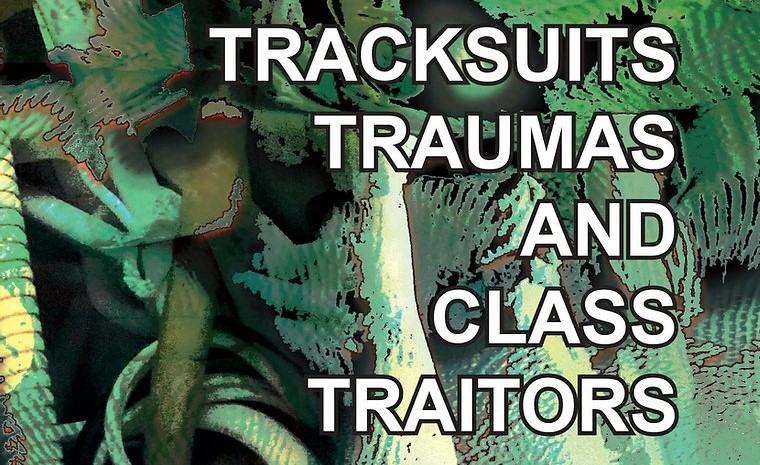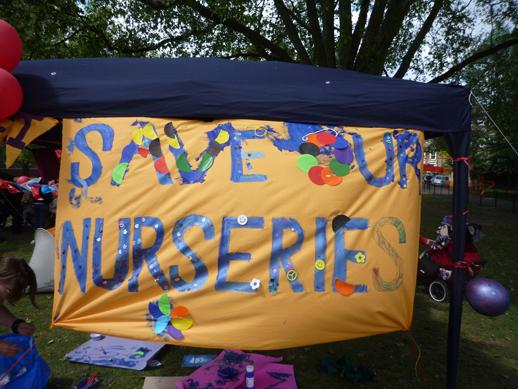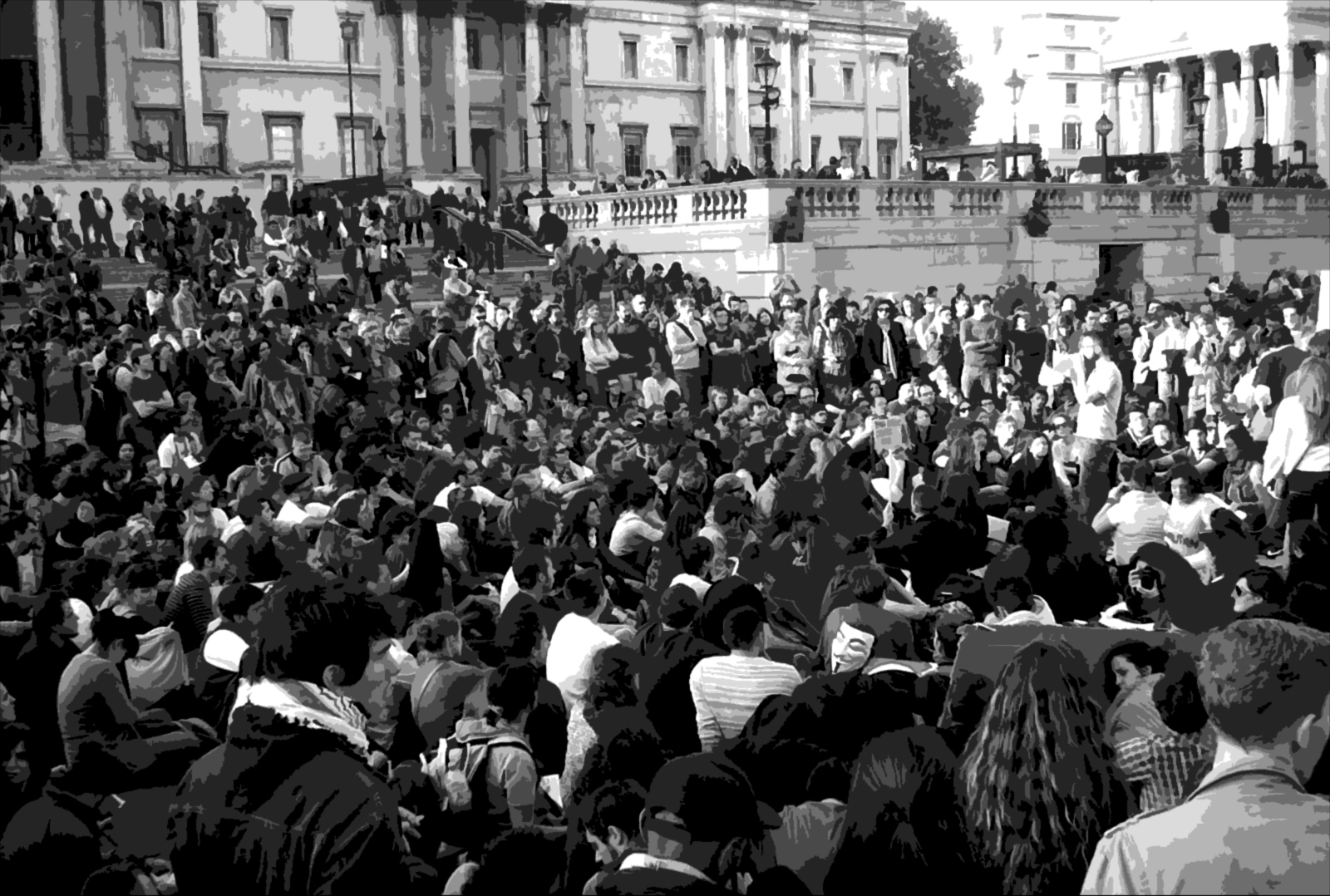Please note: there are sections of this book that describe and discuss violence, including sexual violence.
“It is written to shift the discourse within the social movements that matter to me. It presents an argument that those outside the elite or capitalist class, those who define themselves as socialists, communists or anarchists, must address unequal power relations within their organising and political processes, whether we refer to those in opposition to the capitalist class as one big working class, or as a middle class and working class, as the petty bourgeois, the proletariat or the Lumpen-Proletariat.” – D Hunter, June 2020
Tracksuits, Traumas and Class Traitors is a welcome breath of fresh air. It includes life stories, research, political and social theory and some blunt analysis. This is no manifesto, but it is a clear call to arms. D Hunter writes: “This book, like my previous ‘Chav Solidarity’, builds from the premise that the state will always prioritise capital over people, that any involvement of the state in the lives of poor and working class communities will be to consolidate its own power and be in the interests of capital.”
The introduction to Tracksuits is about 40 pages; please don’t skip them – they count. In them, D acknowledges criticisms of Chav Solidarity, noting that “it set out to give depth to a demographic of people living in the UK who are either pitied or demonised, depending on who is interpreting them and why. Instead, it gave readers the opportunity to ‘lean in’ to the liberal morality of 21st century Britain, with its insistence that people make good or bad choices, which define their good or bad character, and which in turn, define their value.”
D tells us which methods he has used and why, giving us an insight into what to expect. He emphasises the importance of intersectionality and interactions. He references and quotes sources, and weaves these into the text, before, after and sometimes within his essays. This technique makes a powerful, challenging and provocative read: “Once more, I’m going to enter into this process using my formative experiences. Having failed the first time to do justice to the lives that exist within the communities I come from, I’m trying that bit harder the second. Over the course of the 10 essays that are the bulk of Traumas, Tracksuits and Class Traitors, I attempt to dissect the interactions between me and another person, whilst engaging with queer methodologies, class analysis, whiteness studies and carceral abolitionism.”
His understanding of auto/ethnography as a technique is no academic ego-trip. It is rock solid: “the researcher/writer is neither entirely outside nor inside the text, just as the reader is neither inside nor outside…. but really I focus on the blood and bone of poor and working class people, and the ways in which the social and cultural context reproduces forms of class power.”
Just as there is research, collaboration and much thought behind this book, peppered with D Hunter’s life experiences, he gives us his interpretations and reasoning – and his antagonisms. This is how the different raw materials he uses become a very impressive structure, within which he doesn’t hide his views and intentions:
“The aim of the book is not merely to articulate my own lived experience, but to view it as one experience that is embedded and reliant on others’ experiences. I aim to support the ideas which suggest that the networks and communities that we are from do not exist in a vacuum, but are in constant dialogue with the historical trajectory of the state and capital’s logic… the goal is to generate a new collective subjectivity, one that is not static, but is a process of reflection and interaction, moving towards an abolitionist future. Class matters. I know this much to be true. And a gendered and racialised analysis of class helps us better describe the social and political world we find ourselves in, and how it came to be. It helps us understand how we interact with one another, how we value and treat one another, and how we can rectify some of the horrors of the world.”
All of the essays presented in Tracksuits stand up well on their own, as sketches taken from D Hunter’s life. But they are also springboards – to dive into the pool of neoliberal social, political and economic disasters we should be dealing with, head on.
In the chapter ‘Naming Football Teams’, for example, he isn’t seeking pity for the abuse he suffered at the hands (or rather the cock) of his grandad. Neither is he looking to have that man vilified. In fact, he points out the good that his grandad did for his immediate family in the face of poverty and massive prejudices against the Irish travelling community. What he wants is for us to think about how we move from the theory of transformative justice to putting it in place in our lives, our communities, without state interference. He wants us to consider that although human agency does exist, it is often constricted and influenced by the conditions we find ourselves in. Needless to say, too often these are very shit conditions indeed.
In ‘You’re Just a White Boy’, co-written with his mate MD, although he includes a punchy quote concerning whiteness, the killer blow is all MD’s, written from prison: “Black people don’t make these cages, we just live in them. We just die in them. White people make them. White people kill us with them. Both in this one and out there.”
Likewise, the essay ‘100 Miles North’, which focuses on D’s Mum and his relationship with her, harrowing as it may be, provides a strong context for the concept and practice of Disability Justice: “These state services, which were supposedly responsible for my mother’s care and wellbeing, had been shaped by the marketisation of life that has been ongoing since the neo-liberal turn in the 1970s… A kind of ‘gaslighting’ occurs here that only makes the problem worse, where the individual is convinced that the problem is within themselves and is not contextual.”
A major point that D makes concerns what is often lacking in our social movements and the way we organise. He is very clear that we should regard our care practices (how we look after ourselves and each other) as central and essential to theory and practice, not something we bolt on if we think we have the capacity.
There are no easy answers in this book, no snappy slogans, no bright rainbow after the pissing rain. However, when discussing class treachery, D Hunter gives us a pretty big clue about what he believes will help: “…we must also be challenging the ways in which we exist collectively and create our cultures. Class Treachery, in all its myriad of forms, is an act of harm. Harm committed not just against an individual, but against our communities and our movements. Most of us are reeling from, not only these acts of harm, but those committed in the name of White-supremacist, heteronormative, patriarchal capitalism. Our communities, however they are defined and formed, have been devastated by this harm, but we have no option other than to rebuild them with all our strength.”
So how does ‘The Left’ – so often absent from the lives and communities of poor working-class people – support this rebuilding? Clearly one major issue is sharing resources, including money. The others? Well, give the book a read and make up your own mind.
Pre-order your copy/copies (at a regular or solidarity price): https://www.theclassworkproject.com/shop-1



